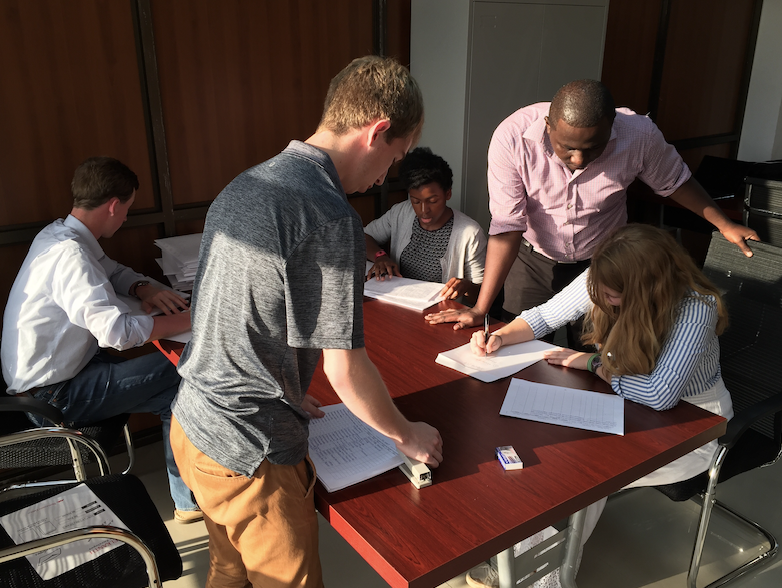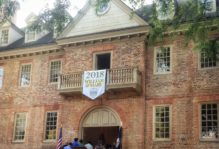A W&M Sophomore’s Experience Conducting Research in Tanzania Through GRI
By Ethan Harrison ’20
“Alright, Ethan you’re up!” — with those words, I (nervously) began to present the research I had worked on for the majority of my time at William & Mary.
The usual suspects from the Global Research Institute were in the room, including Brad Parks of AidData and Prof. Philip Roessler of the Africa Research Center and Digital Inclusion and Governance Lab. But there was also me, the lone student. It was graduation weekend 2019, and we were presenting to Strive Masiyiwa, a legendary billionaire entrepreneur and philanthropist, who launched one of Africa’s largest mobile service providers. I remember suppressing a grin as I began to present the results of a randomized control trial on the impact of mobile phones on women’s livelihoods in Tanzania. It felt somewhat surreal presenting research of this scale to a room full of thought leaders. As I left, I remember thinking two things:
- GRI is a pretty cool team to be a part of.
- How did I get here again?
In Spring 2017, I attended my first class at W&M — a seminar on mixed research methods taught by Prof. Roessler. Along with three other students in the class, I was invited to work on the project in Tanzania. All four of us were sophomores, and speaking at least for myself, I, at the ripe age of 20, had very little pre-existing knowledge of what implementing a field experiment in Sub-Saharan Africa would entail. That changed over the course of the semester, as Prof. Roessler spent hours with us in the classroom teaching (and challenging) us on the ins and outs of experimental design, research ethics, and previously published studies. Outside of class we met to discuss the project — how to ethically conduct field research, and the importance of cultural awareness. As a result, by the time I arrived in Tanzania, I had a working foundation of research knowledge that prepared me to learn and grow in this environment.
Experiences like this are what make opportunities at ARC and DIG so special. Prof. Roessler empowers students to take initiative and gives them the opportunity to rise to the occasion. More specifically, his model of mentoring students in the classroom before sending them out to apply new skills and knowledge in the field is a rewarding way to learn.
Over the course of seven months, while embedded with our implementation partner’s country office, I received a tremendous education in how to work successfully in the field and conduct high-quality research. I lived with a local Tanzanian family that, three years later, I am still in contact with. It is easy to pinpoint how my experiences navigating complex Tanzanian bureaucracies to obtain research permissions, mapping research locations by motorcycle, and cleaning or coding large datasets and surveys provided an ideal toolkit for success in the interdisciplinary landscape of development and humanitarianism.
I have been very fortunate in the opportunities I have since received: research opportunities that took me to Uganda and Colombia, a funded honors thesis on conflict migration, and now an internship with the UNDP Crisis Bureau. But I will always look back at my time in Tanzania — Prof. Roessler’s mentorship and spending a summer with incredibly bright peers (who would go on to be some of my closest friends) — as the singular highlight of the past four years. In short, if Phil Roessler asks if you want to go to Tanzania, just go. It will certainly be an education; it just might change your life.





No comments.
Comments are currently closed. Comments are closed on all posts older than one year, and for those in our archive.